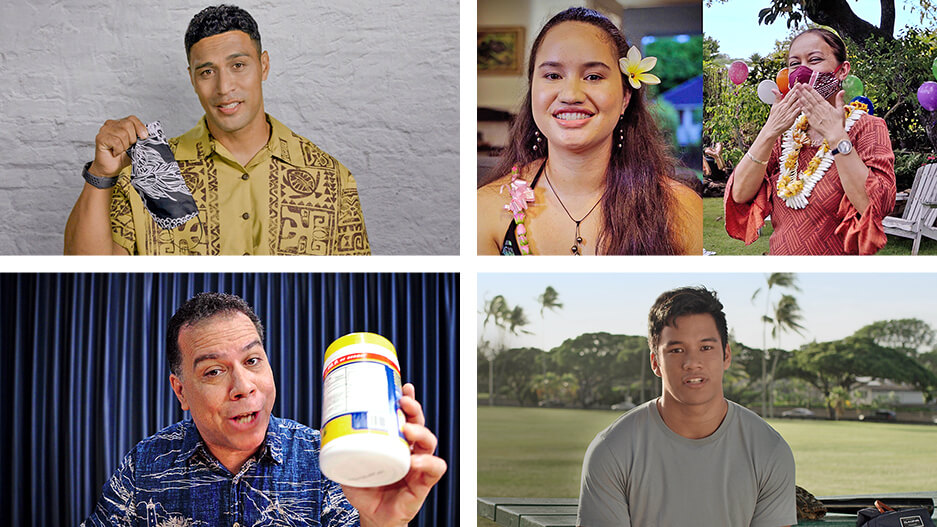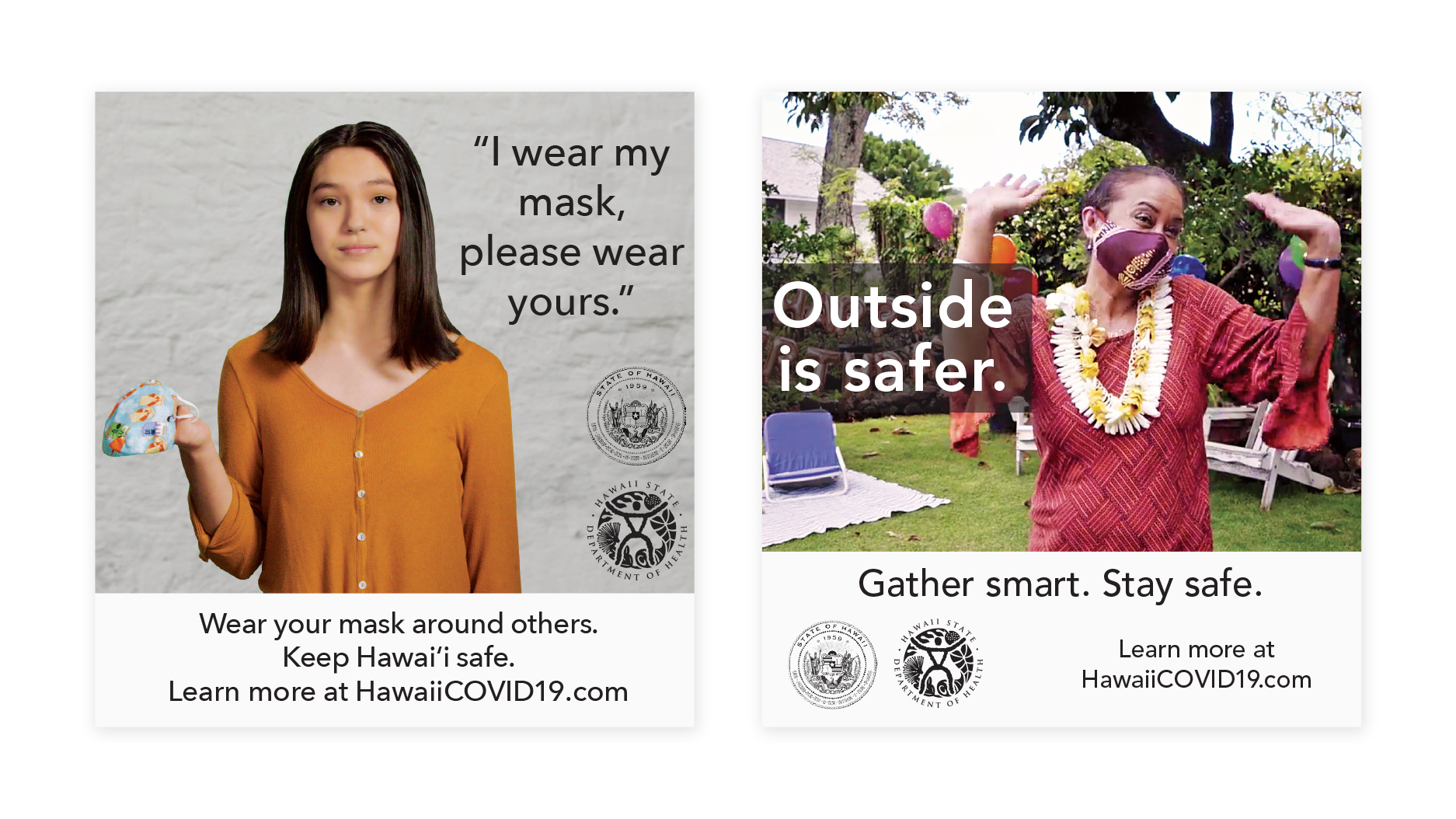Advertising

The Challenge
As Hawai‘i tried to cope with the spread of COVID-19, the rising number of cases, the shutdown of many businesses as well as government offices, the State of Hawai‘i Department of Health (DOH) needed to develop a communication outreach program to inform residents about the actions they should take. In order to do this, DOH wanted to ensure the effectiveness of their communications by understanding the following areas: mandate adherence; unemployment and the effect on families caused by school closures and the shift to at-home schooling; financial concerns or reliance on assistance; and the coronavirus’ effect on our residents’ mental health.
As the virus spiraled and behavior guidelines (such as mask wearing and social distancing) were introduced, Anthology set out to conduct a series of "virtual" focus groups to understand the reasons for non-compliance, test various message themes to determine which have the greatest opportunity to affect behavior, use learnings to inform messaging for mass and targeted audiences, and develop and execute an ongoing quantitative research program that would periodically take the “temperature” of residents on all islands. The objectives of the campaign were to provide guidance for mass messaging and give regular feedback of DOH efforts; provide trackable and consistent measurements of behavior; review feedback on creative tools such as tag lines, television ads, etc.; and provide flexibility to add new components to surveys as warranted, such as changes in mental health issues, vaccines, etc.
The Solution
After conducting eight focus groups with residents who admitted to not following COVID-19-related mandates, Anthology determined that younger residents feel they won't get COVID-19 so, for them, it is a financial issue, not a major health issue. The focus groups helped determine the most relevant and convincing message themes that would most appeal to non-compliant audiences. The team produced creative that told real stories about the ways that young people were suffering (lost job, have no savings, had to move back in with parents, no money to go out anywhere, etc.) to encourage other young people to follow mandates in order to return to "real life" sooner. Anthology employed a robust paid media campaign that included TV, digital media, radio, and print. The research informed every facet of the campaign, from the messaging to the visual approach to the selection of the on-camera talent. The team used select on-camera talent to boost campaign awareness through social media and public relations.

Anthology also created and executed a five-wave mixed-mode quantitative survey that continued tracking the program into 2021. The team developed a core questionnaire with standard questions and a section to cover emerging issues, such as stress on parents, common reasons for mandate violations, mental health issues, acceptance of vaccine, etc. Evaluative research following the early phases of the DOH COVID-19 campaign earned 74% aided recall statewide. Campaign spots scored high “top box” scores in key areas including overall message; “kept my attention;” “encouraged me to follow the mandates to wear masks, wipe surfaces, stay six feet apart;” “gave me something to think about” and “is an appropriate message for where I am in life.”